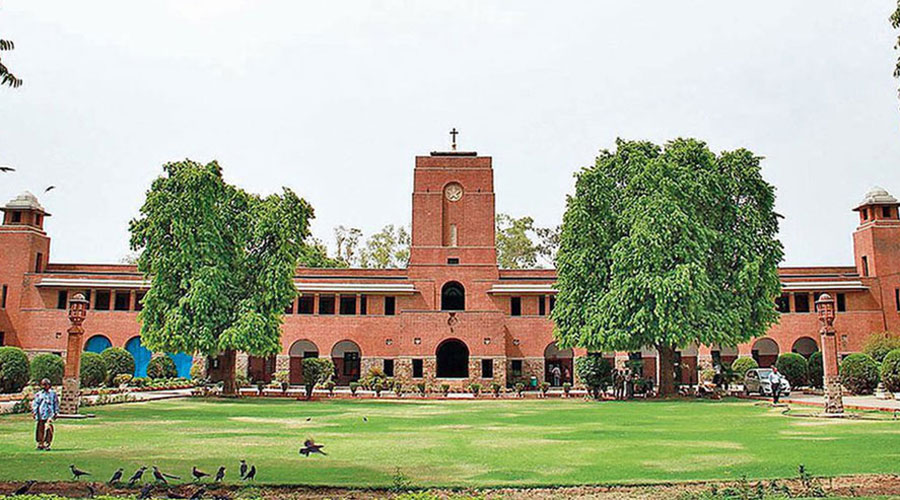Delhi University has decided not to admit students to undergraduate courses through the extra-curricular activities (ECA) quota this year, except for those with NCC and NSS certificates, on the ground that trials cannot be held because of the pandemic.
The decision has come in for criticism as last year 1,200 students had got admission to colleges under DU through the ECA quota, of which 900 were those with proficiency in dance, music and drama and 300 with certificates from the National Cadet Corps or the National Service Scheme.
Vice-president M. Venkaiah Naidu, responding to pleas in his capacity of DU Chancellor for a rollback of the decision, on Friday held a meeting with the pro-vice-chancellor and the dean of colleges where he disapproved of the move and advised the authorities to review it, according to a media release issued by the Press Information Bureau.
Objections have also been raised over DU’s decision to introduce, amid the pandemic, a two-stage registration process under which students will have to fill in the personal details form online now and upload their mark sheet when the Class XII results are announced.
The DU’s insistence on recent certificates from students applying under the Other Backward Classes (OBC) and Persons with Disabilities quotas have also come in for criticism.
A total of 66 DU-affiliated colleges will take in around 70,000 undergraduate students this year, around 8,000 more than the number admitted last year. The increase in the number of seats is because of the introduction of the 10 per cent Economically Weaker Sections (EWS) quota in 2019, for which the government had asked all educational institutions under its administrative control to enhance their seats by 25 per cent over two years.
Dean of admissions Shobha Bagai said colleges can set aside up to 5 per cent of the seats for the ECA and sports quotas, with the minimum requirement being 1 per cent in each category. This time, DU will set aside 1 per cent seats for the ECA category and take in only those students with NCC or NSS certificates.
“The students applying under ECA have to take part in trials before juries to demonstrate their talent. Because of the pandemic, conducting trials will not be possible. This university is not against the ECA quota but the pandemic has forced us to take this decision,” Bagai said.
Aparajita Sarma, a Bharatanatyam artiste who runs a dance academy, said the university could have accepted video recordings for assessment, a practice followed for selection of performers for national-level dance festivals in Khajuraho and Konark.
“The creative side is an incentive for students. The ECA quota gives encouragement to students. Otherwise, the students will spend time only on books and coaching. The DU’s decision is a negative step that will demotivate students,” she said.
Sudhanshu, an OBC teacher, and Abha Dev Habib, a former DU Executive Council member, have opposed the requirement of recent caste certificate, saying this could be done away with this time.
“Asking for recent certificates (amid the pandemic) is a bureaucratic approach. Yes, rules are important, but the government and institutions should redefine themselves during these difficult times. Who wants to be near hospitals now (for a disability certificate) or travel to get a (caste) certificate? This means the system is creating more hurdles for these sections,” Habib said.
DU EC member Rajesh Jha said rural students were facing difficulties because of the two-stage registration. “The rural students have to visit the nearest town to fill up (online) forms. They have to do it twice now. There are electricity and Internet issues also. The registration should have been done at one go,” Jha said.
Bagai said the two-stage registration had been introduced as the National Testing Authority, which has been conducting entrance exams to DU undergraduate courses since last year, wanted to hold the tests in June. The process to collect personal details of applicants began in April, but as Class XII board exam results are not usually declared before May, the two-stage registration was necessitated.











